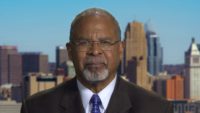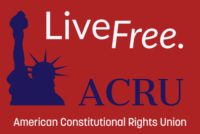Requiring voters to prove they are who they say they are in order to cast a ballot is a simple, common-sense measure that helps ensure honest elections.
Opponents of photo ID falsely charge that such requirements discriminate against poor and minority voters. Each time this claim has been used in the courts, plaintiffs have failed to produce evidence of any individual who was actually denied the right to vote for lack of a photo ID. Despite this fact, and that all demographic groups including African-Americans support voter ID laws, accusations of Jim Crow, the racist system that disenfranchised Southern blacks for generations, continue to be hurled with abandon.
The Supreme Court has stated that because voter ID is free, the inconveniences of going to the Bureau of Motor Vehicles, gathering applicable documents, or posing for a photograph are not substantial burdens on most voters’ right to vote. Nor do they represent a significant increase over the usual burdens of voting — registering or driving to a polling place. If people show up without an ID, they can cast a provisional ballot and bring in their ID later.
The Supreme Court found that the interests in requiring voter ID are unquestionably relevant in protecting the integrity and reliability of the electoral process as part of a nationwide effort to improve and modernize election procedures criticized as antiquated and inefficient.
In Crawford v. Marion County Election Board (2008), the Supreme Court also noted the particular interest in preventing voter fraud in response to the problem of voter registration rolls with a large number of names of persons who are either deceased or no longer live in Indiana. While the trial record contained no evidence that “in-person voter impersonation at polling places had actually occurred in Indiana, such fraud had occurred in other parts of the country, and Indiana’s own experience with voter fraud in a 2003 mayoral primary demonstrates a real risk that voter fraud could affect a close election’s outcome.”
The Supreme Court noted that there was no question that the state had a legitimate and important interest in counting only eligible voters’ ballots. Lastly the Court noted that the state interest in protecting public confidence in elections also has independent importance because such voter confidence encourages citizen participation in the democratic process.
Using a photo ID for voting is a central recommendation from the bipartisan Commission on Federal Election Reform, headed by former President Jimmy Carter and former Secretary of State James Baker. Here’s what the commission’s official report says:
“A good registration list will ensure that citizens are only registered in one place, but election officials still need to make sure that the person arriving at a polling site is the same one that is named on the registration list. In the old days and in small towns where everyone knows each other, voters did not need to identify themselves. But in the United States, where 40 million people move each year, and in urban areas where some people do not even know the people living in their own apartment building let alone their precinct, some form of identification is needed.”
“The electoral system cannot inspire public confidence if no safeguards exist to deter or detect fraud or to confirm the identity of voters. Photo IDs currently are needed to board a plane, enter federal buildings, and cash a check. Voting is equally important.”
ACTIVITY
ACRU’s Blackwell: Goodbye, Election Day. Hello Corrupt Politicians Act
A notorious bill moving through Congress – H.R. 1 – contains a swarm of bad ideas. But little noticed is a provision that makes Election Day obsolete. We’ve lost so many unifying cultural events that bring Americans together, it is no surprise that H.R.1 not only would start the election weeks earlier, but also prolong the election well after Election Day.
ACRU’s Blackwell Exposes Real Racism in WMAL’s Mornings on the Mall Show
ACRU Policy Board Member Ken Blackwell joined the Mornings on the Mall Show to expose the blatant hypocrisy by "woke corporations" and the left's insistence that minorities aren't capable of obtaining identification. Blackwell wonders why Major League Baseball and others require IDs routinely while insisting it's racist to require an ID to vote.
20 States Send Letter to Senate Leaders Promising Swift Consequences if HR1 Passes
Democratic leaders no longer even try to hide their real objectives. All of the bills introduced by Democratic lawmakers of late have been undisguised power grabs.
ACRU’s Blackwell: MLB commissioner ‘didn’t do his homework’: Cincinnati Reds minority owner [VIDEO]
ACRU Policy Board Member Amb. notes that the MLB ought the lie that GA voting laws are "suppressive" and caused a $100M "catastrophe" for Atlanta's economy and African American community when it moved the All Star game. Ken explains vote safety measures protect ALL VOTERS--including minority voters.
ACRU’s Blackwell: Corporate Wokesters Betray Shareholders’ Trust by Bashing Election Integrity Laws
ACRU Action Fund Board Member Ken Blackwell castigates Georgia-based companies like Coca-Cola, Delta and also Major League Baseball for giving into the woke mob over their unfounded and absurd objections tying racism to new ballot safeguards its state leaders passed.
Media Availability: ACRU’s Blackwell on Corporate ‘Wokesters’ Reaction to Voter ID Laws
Naples, FL—American Constitutional Rights Union Policy Board Member Ken Blackwell castigates Georgia-based companies like Coca-Cola, Delta, and also Major League Baseball for giving into the woke mob over their unfounded objections to new ballot safeguards [...]
Biden: DOJ ‘Taking a Look’ at Georgia’s Newly Enacted Election Reform Law
The State of Georgia recently passed vote security measures to ensure the ballots of its citizens are fully protected. Georgia's right to pass these laws is itself protected under the Constitution and the doctrine of federalism, but the Biden Administration is gearing up to unlawfully impose federal authority over these legitimate legislation changes.
Another black eye for fraud-prone mail-in ballots; local election thrown out.
What happened in this town was actually a “mini 2020 election,” so it actually speaks to the safety and security of “mail-in” ballots, how they’re counted, the fraud that can happen, and what these crooks are doing at polling stations – everything we wanted to be investigated in 2020.
Trump Adviser Navarro: 6 Frauds ‘More Than Sufficient’ to Swing Election Outcome
White House trade adviser Peter Navarro issued a blistering 36-page report Thursday, in which he asserted that voter irregularities and election fraud have been found in "more than sufficient" quantities to swing the election to [...]
Detroit area judge throws out multiple affidavits describing fraud, just because
A Wayne County, Michigan, liberal judge elected in a 74% Democrat district, made this statement about allegation of blatant fraud and election interference at Detroit’s largest voting station: “the Plaintiffs' interpretation of events is incorrect.” How about “the judge’s overstepping his state and Constitutional authority by playing prosecutor and providing his own biased testimony is incorrect.”


